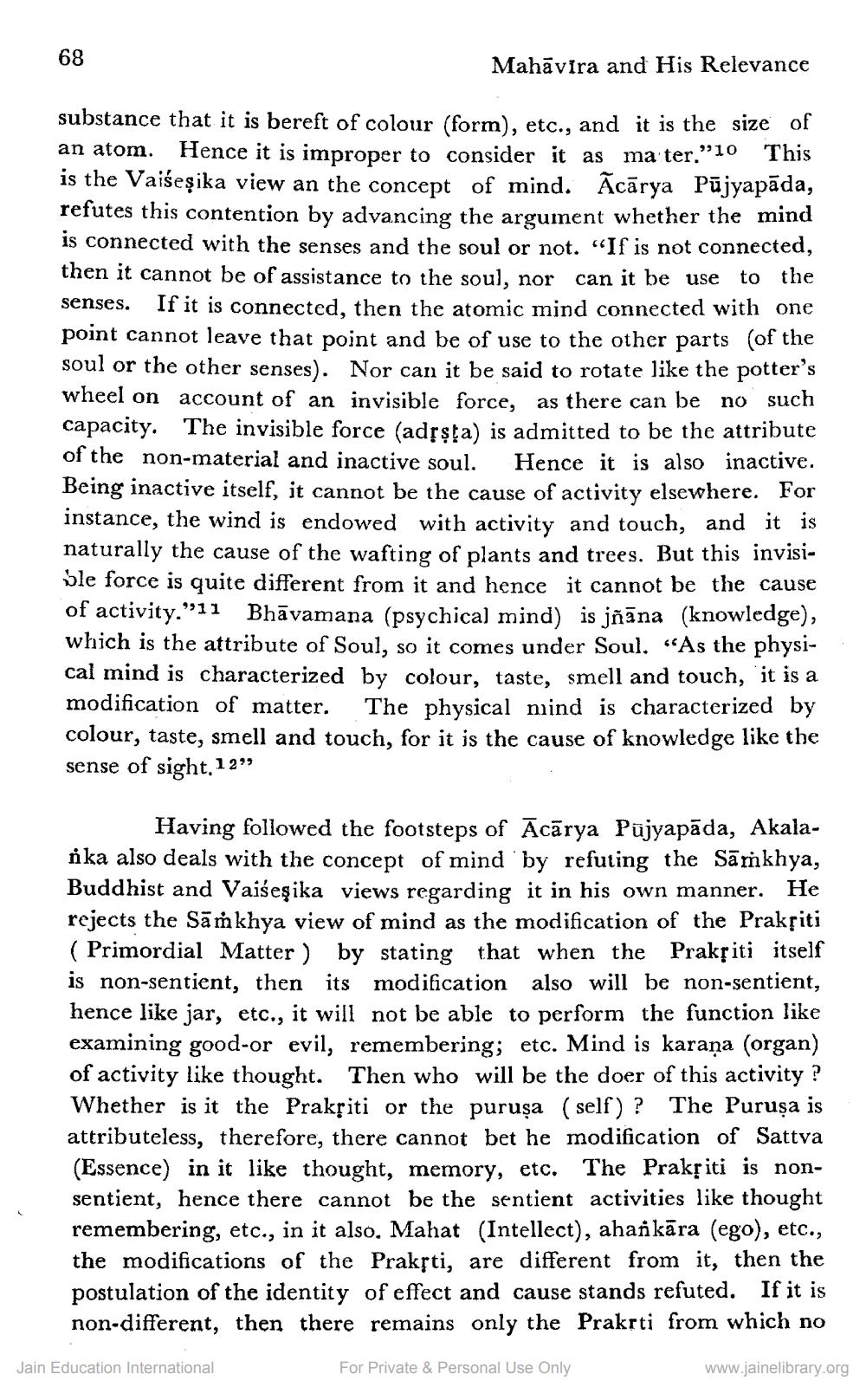________________
68
Mahāvira and His Relevance
substance that it is bereft of colour (form), etc., and it is the size of
atom. Hence it is improper to consider it as ma ter.”10 This is the Vaišeşika view an the concept of mind. Acārya Pūjyapāda, refutes this contention by advancing the argument whether the mind is connected with the senses and the soul or not. “If is not connected, then it cannot be of assistance to the soul, nor can it be use to the senses. If it is connected, then the atomic mind connected with one point cannot leave that point and be of use to the other parts of the soul or the other senses). Nor can it be said to rotate like the potter's wheel on account of an invisible force, as there can be no such capacity. The invisible force (adssta) is admitted to be the attribute of the non-material and inactive soul. Hence it is also inactive. Being inactive itself, it cannot be the cause of activity elsewhere. For instance, the wind is endowed with activity and touch, and it is naturally the cause of the wafting of plants and trees. But this invisible force is quite different from it and hence it cannot be the cause of activity."11 Bhāvamana (psychical mind) is jñāna (knowledge), which is the attribute of Soul, so it comes under Soul. “As the physical mind is characterized by colour, taste, smell and touch, it is a modification of matter. The physical mind is characterized by colour, taste, smell and touch, for it is the cause of knowledge like the sense of sight, 12"
Having followed the footsteps of Ācārya Pujyapāda, Akalaåka also deals with the concept of mind by refuting the Sāmkhya, Buddhist and Vaiseşika views regarding it in his own manner. He rejects the Sāṁkhya view of mind as the modification of the Praksiti ( Primordial Matter) by stating that when the Prakṣiti itself is non-sentient, then its modification also will be non-sentient, hence like jar, etc., it will not be able to perform the function like examining good-or evil, remembering; etc. Mind is karaņa (organ) of activity like thought. Then who will be the doer of this activity ? Whether is it the Prakṣiti or the puruşa (self)? The Puruşa is attributeless, therefore, there cannot bet he modification of Sattva (Essence) in it like thought, memory, etc. The Prakṣiti is nonsentient, hence there cannot be the sentient activities like thought remembering, etc., in it also. Mahat (Intellect), ahankāra (ego), etc., the modifications of the Praksti, are different from it, then the postulation of the identity of effect and cause stands refuted. If it is non-different, then there remains only the Prakrti from which no
Jain Education International
For Private & Personal Use Only
www.jainelibrary.org




